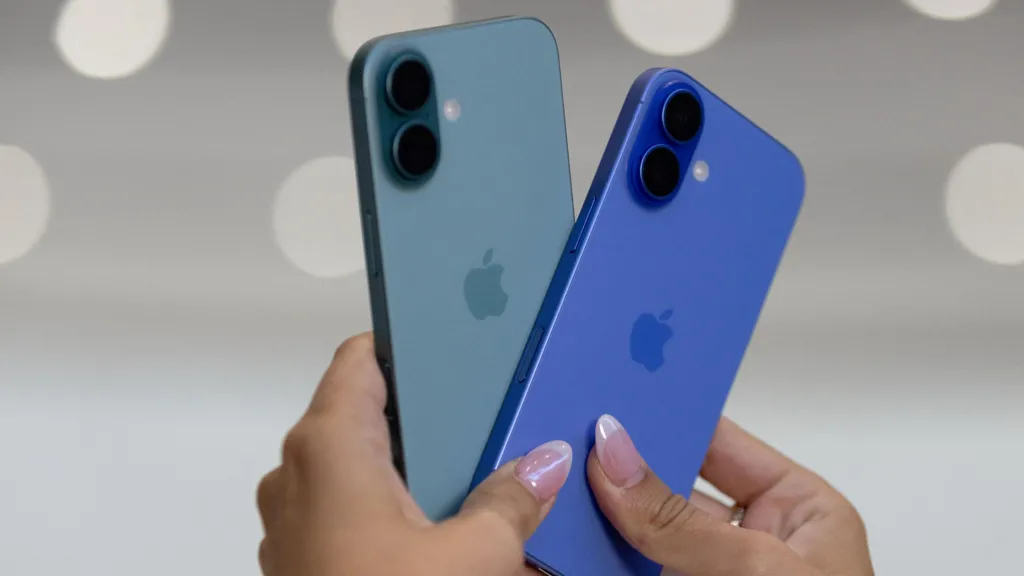The world's most popular gadgets – phones, laptops, tablets, smartwatches – could be about to get a lot more expensive in the US.
Many of them are made in China, which now faces a 145% tariff on its goods imported to the US, under President Donald Trump's controversial trade policy.
The effect this may have on the iPhone and its maker Apple is under the spotlight – with some analysts saying if costs are passed onto consumers, iPhone prices in the US could rise by hundreds of dollars.
And if the tariffs impact the value of the dollar, it could become more expensive to import iPhones and other devices around the world – potentially leading to higher prices in UK shops.
Ben Wood of CCS Insight told the BBC that if tariffs remain in place, Apple may raise iPhone prices globally when the next iteration is launched.
"It is unlikely the company would want to have differentiated pricing globally," he said – as the tech giant would want to avoid people buying the device cheaply in the UK and selling it on for profit in the US.
Though others say they believe it could result in cheaper prices if firms which normally send their goods to the US instead send them to countries which don't have such steep tariffs, like the UK.
And there may be a significant change if the cost of tariffs is passed onto consumers globally – longer contracts to spread out the cost of the device.
While a phone contract may typically last two years, Mr Wood said some firms already offer four year deals, and he believed "we might see five-year contracts" in 2025.
"One could argue it is almost like having a mortgage for your smartphone," he said.
Where are iPhones made?
The US is a major market for iPhones and Apple accounted for more than half of its smartphones sales last year, according to Counterpoint Research.
It says as much as 80% of Apple's iPhones intended for US sale are made in China, with the remaining 20% made in India.
Along with fellow smartphone giants such as Samsung, Apple has been trying to diversify its supply chains to avoid over-reliance on China in recent years.
India and Vietnam emerged as frontrunners for additional manufacturing hubs.
As tariffs took effect, Apple reportedly looked to speed up and increase its production of India-produced devices in recent days.
Reuters reported on Thursday that Apple chartered cargo flights to ship more than 600 tons of iPhones from India to the US.
Amid Trump's 90-day pause on tariffs, including those levied on India, the country may be set to benefit from an iPhone manufacturing boost.
The BBC has approached Apple for comment on the impact of tariffs on their operations and prices, but has not had any response yet.
How exposed is Apple to tariffs?
Trump and his advisors have said the aim of its tariffs are to encourage more US manufacturing.
However, the tech industry relies on a global network of suppliers for product components and assembly.
This, and finding skilled workers to match the fast pace and low cost of production in Asia, means relocating supply chains is no simple feat.
Apple committed a $500bn (£385bn) investment in the US in February – which the Trump administration believes will result in more homegrown manufacturing.
But Wedbush Securities analyst Dan Ives said shifting parts of its supply chain from cheaper manufacturing hubs in Asia to the US will take a lot of time, and money.
"The reality is it would take 3 years and $30 billion dollars in our estimation to move even 10% of its supply chain from Asia to the US with major disruption in the process," he wrote on X on 3 April.



